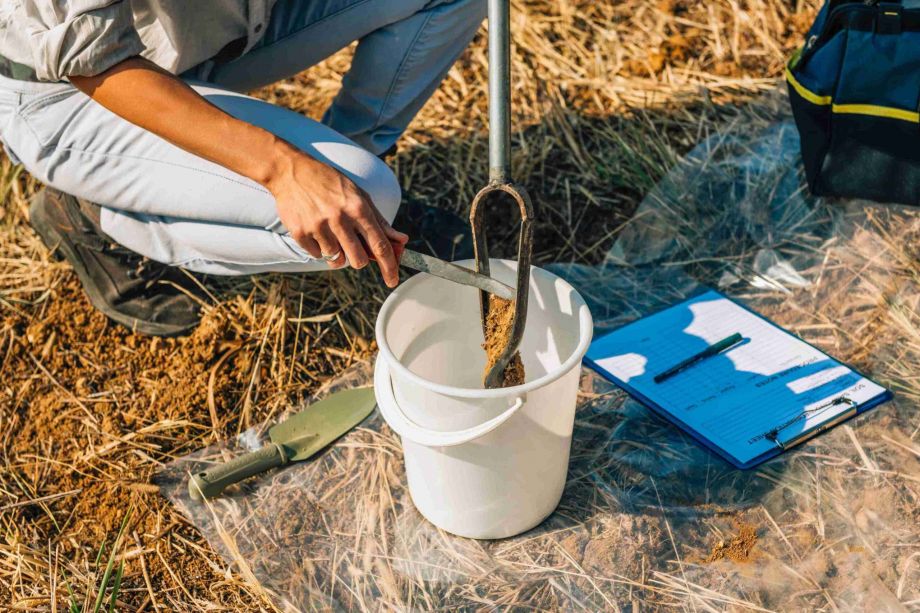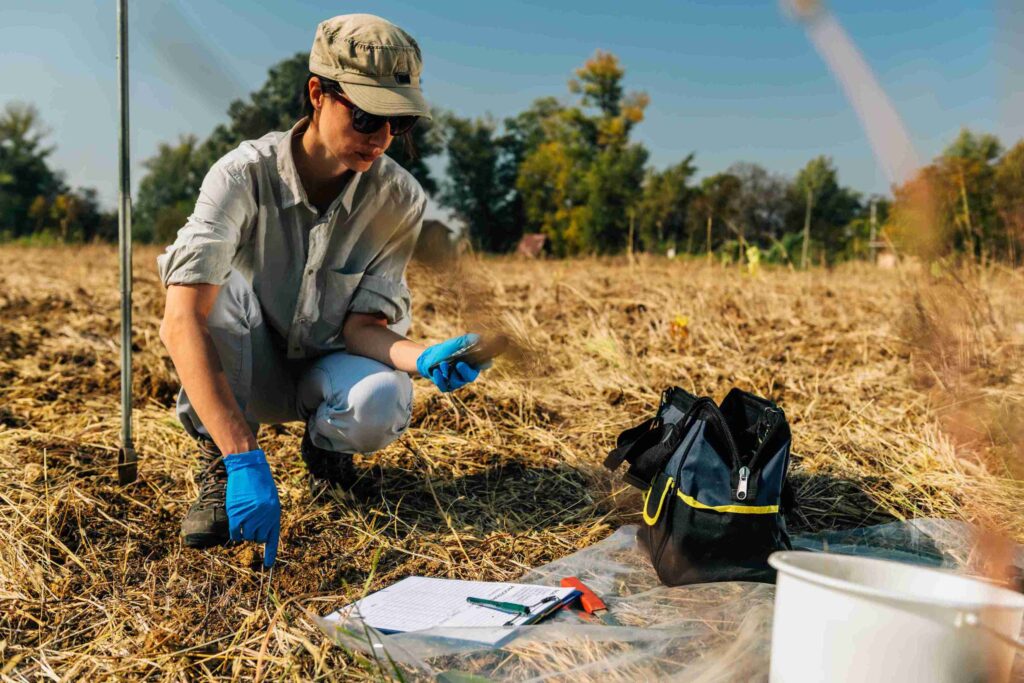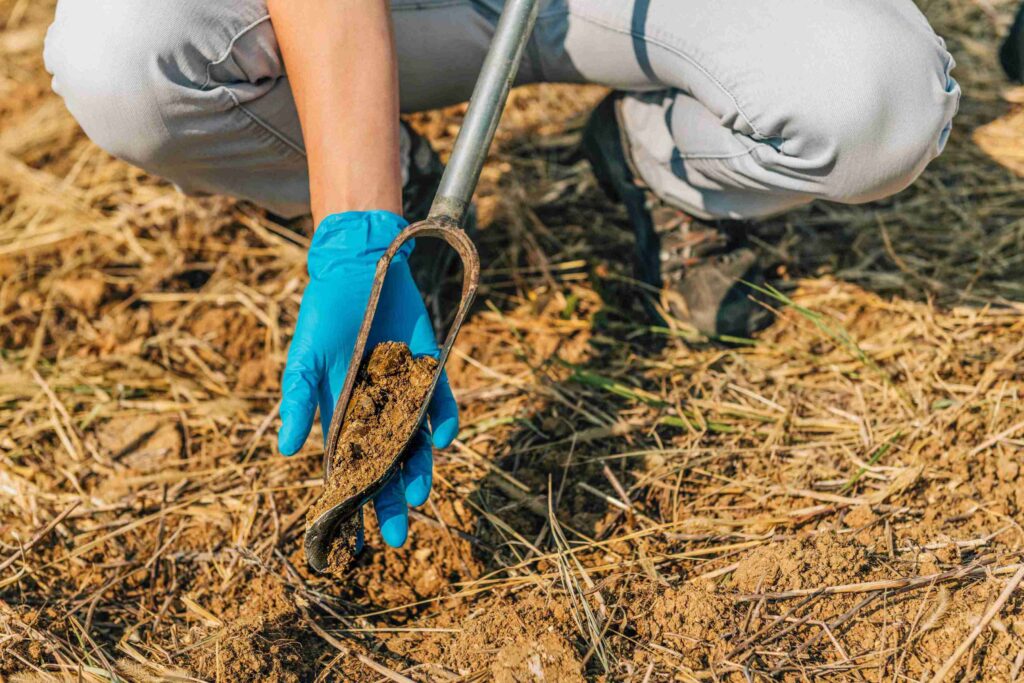
Soil Bearing Capacity Test Costs (Guide)
Thinking about building a new house? Before you pour that first bit of concrete, you need to know what’s happening under the surface.
That’s where a soil bearing capacity test comes in.
It’s basically a check-up for your land to see how much weight the soil can handle without shifting, cracking, or giving you foundation problems later.
The cost of this test isn’t the same everywhere, and it changes based on a bunch of factors like location, soil type, how detailed the testing needs to be, and a few more things.
In this post, we’ll break down the average cost of a soil bearing capacity test.
How Much Does A Soil Bearing Capacity Test Cost?
The cost of a soil bearing capacity test usually ranges from $300 to $1,500, depending on how detailed the test needs to be.
Smaller projects, like single-family homes, usually fall on this range. If you’re working on something bigger, like a commercial building or a structure that needs deeper foundations, the cost can push up closer to $2000 or more.
Here’s a simple breakdown:
| Type of Test / Scope | Avg Price | What It Covers |
| Basic Plate Load Test | $300 – $600 | On-site test, shallow foundations |
| Borehole Sampling + Lab Analysis | $500 – $1,000 | Drilled samples, lab strength testing |
| Multiple Boreholes and Complex Projects | $1,000 – $2,000+ | Larger sites, deep foundations, detailed reporting |
This table should give you a ballpark idea, but keep in mind that location, soil type, and the level of detail in the report can all shift the final cost.

Also Read: How Much Does A Shrink Swell Test Cost?
Our Bearing Evaluation Prices
At Soils Inc, our soil bearing evaluations range between $750 and $2,000, depending on the site conditions and project requirements.
Here’s what’s included in that price:
- Site visit and on-site evaluation
- Soil sampling at the necessary depths
- Laboratory testing of soil samples
- Analysis of soil strength and load-bearing capacity
- A professional report with results and recommendations
We handle the process from start to finish, so you get clear answers without the guesswork.
What Affects The Cost Of Soil Bearing Capacity Tests?
There are several moving parts that influence the cost of soil bearing evaluation cost. Some are straightforward, like how many tests you need. Others depend on conditions at the site itself.
Let’s look at the main factors that decide the final bill:
#1 Location Of The Site
Where your site is located can make a surprising difference.
If you’re close to a city or an area with plenty of testing companies, the price tends to stay on the lower side since crews don’t have to travel far.
But if you’re building in a rural or remote spot, travel fees, fuel costs, and the time it takes for the crew to reach your property can drive the price up. Even the condition of access roads matters as difficult terrain may require extra effort or equipment just to get to your site.
Also Read: What To Do If Your Land Fails A Perc Test?
#2 Type Of Test Used
There are different types of soil bearing capacity tests.
A plate load test is usually the quickest and most affordable since it measures the soil’s ability to support weight right on the surface.
On the other hand, borehole sampling with lab analysis is more detailed.
This method digs deeper (literally) and gives engineers a full picture of how your soil behaves at different depths.
That extra detail is great for bigger or heavier structures, but it also means more cost because of the added equipment, time, and lab work.
#3 Depth Of Investigation
The depth of testing matters a lot too.
For smaller, lighter buildings that only need shallow foundations, surface-level testing is often enough. That keeps things simple and affordable.

But if you’re planning a heavier build like a multi-story structure or something with deep footings, the crew may need to drill deeper to understand what’s going on below the surface.
More drilling equals more time, more labor, and more money added to the bill.
Also Read: How Much Does Pre-Construction Soil Testing Cost?
#4 Number Of Test Points
Sometimes 1 test point gives enough information, especially for a small home on a smaller lot.
But bigger plots or uneven sites usually need multiple test points to make sure the soil strength is consistent across the property.
Each additional point adds more setup, drilling, and reporting, which raises the total cost.
It’s a little like taking multiple blood samples instead of just one – you get a clearer picture, but it takes more work.
#5 Equipment And Crew Needed
The gear required can vary from site to site.
A straightforward test might only need a small rig and a couple of people. That’s quick and keeps costs low. But if the job calls for heavy-duty drilling rigs, specialized machinery, or a larger team to handle complicated conditions, the cost climbs.
More equipment and more people on-site always mean a higher bill at the end.
#6 Soil Conditions
The soil itself can make testing easier or harder.
Firm, stable soil is usually straightforward to work with and is cheaper.
But if your land has rocky layers, loose sand, or really soft clay, the test can take longer and be trickier to complete. The equipment may wear down faster, or the crew might need to slow down to get reliable results.
These challenges all add to the overall soil bearing capacity test costs since the test requires more effort to complete properly.
Also Read: What Soil To Use For Grading Around House?
#7 Reporting Details
What kind of report you need also affects the price.
A basic summary is usually the cheapest option, giving you just the essential results.
But if you need a detailed engineering report like something with data, graphs, recommendations, and step-by-step guidance for your foundation, that will cost more.
These comprehensive reports take more time to prepare and require a higher level of expertise, which adds to the final price tag.
Bottom Line
Soil bearing capacity tests cost somewhere around $300 to $1,000 for most small residential projects. Bigger, deeper, or more complex projects will naturally run higher.
The final cost depends on the site location, the type of test, the depth, and how detailed you want the results to be.
These tests might not seem exciting, but they can save you a ton of money down the road.
Spending a few hundred dollars now is way better than dealing with foundation repairs later.








